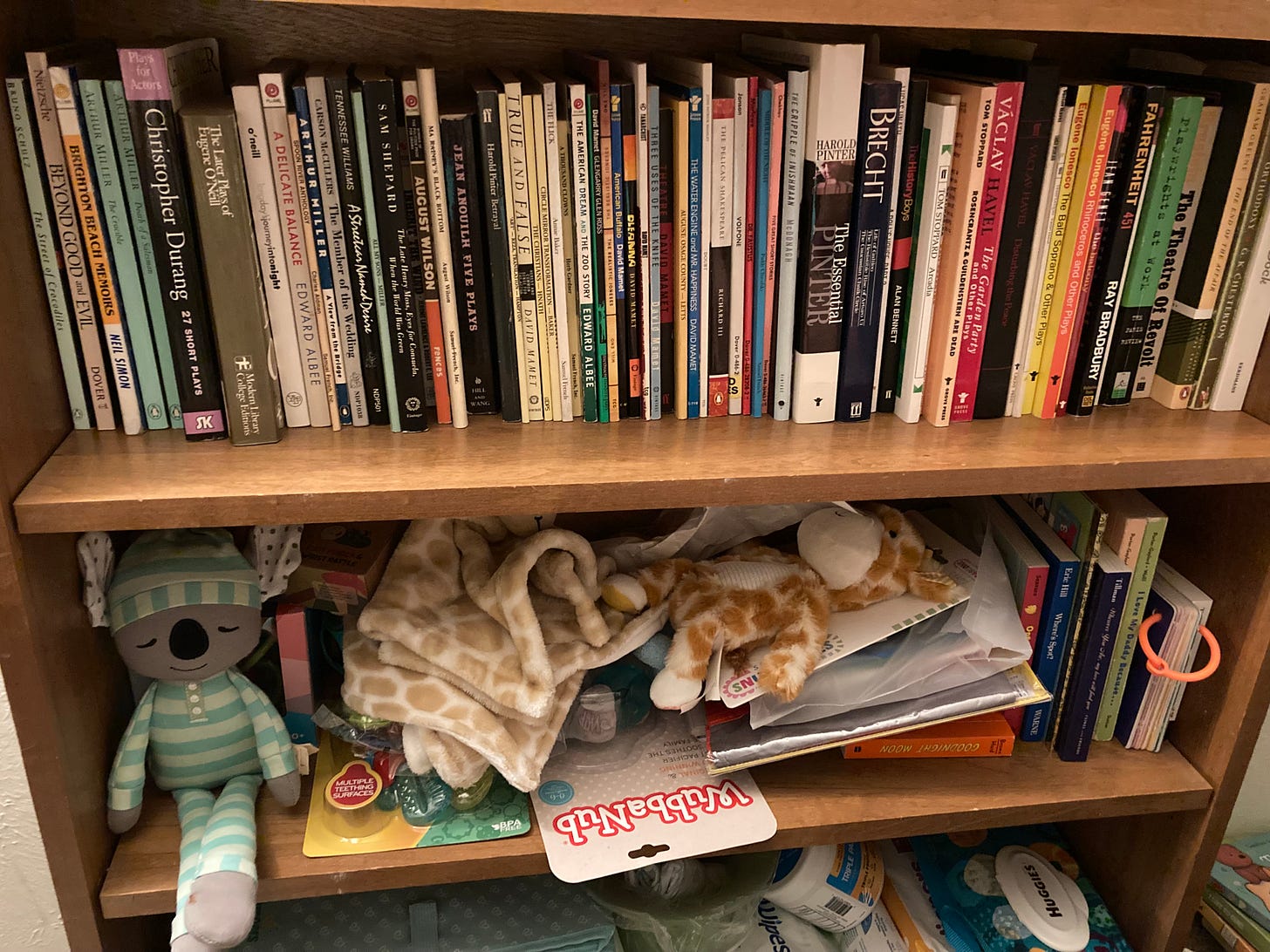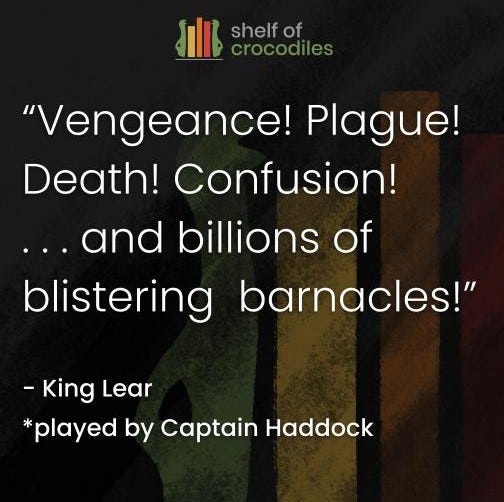Well done, readers.
By one hundred crocodiles, I mean nothing other than one hundred subscribers. Having hit that milestone earlier this month, we’re due for a party.
If you’re new here, welcome and come on in.
If you’d like a tour, check out the mission-statement style essay I published a year ago. Or better yet, sample the goods with some thoughts on Watership Down, The Napoleon of Notting Hill, or how Kanye West and Jane Austen speak to the times we’re living through.
In light of one hundred subscribers, and with guest author D.T. Adams kicking off a recurring short column, there’s every reason to keep this party going.
That is, if you enjoy this literary layman's content, consider leaving something in the tip jar, or becoming a monthly Ko-Fi patron of Shelf of Crocodiles.
Hoo-rah.
Upward and onward.
From the Commonplace
I’ve been taking another lap through doctor-writer Theodore Dalrymple’s seminal essay collection ‘Our Culture, What’s Left of It.’
He’s brilliant, to say the least.
In one essay called ‘The Rage of Virginia Woolf’,’ Dalrymple points out some strangely familiar notions in the feminist author’s description of what Cambridge University should be replaced with. Ever insightful, and analyzing Woolf’s writing from ‘Three Guineas’ a polemic she published late in the ideologically decadent 1930’s, he writes:
“Mrs. Woolf’s ideal college—the kind that would prevent rather than promote wars—would not be in any way elitist. It would “not [be] parceled out into the miserable distinctions of rich and poor, clever and stupid.” It would, rather, be a place “where all the different degrees and kinds of mind, body and soul met and co-operated.”
That is, it would be entirely nonjudgmental, even as to intellect. For her, the urge to compete does not inhere in man’s nature, nor does it result in anything other than violent strife. Henceforth there is to be no testing oneself against the best, with the possibility, even the likelihood of failure: instead, one is perpetually to immerse oneself in the tepid bath of self-esteem, mutual congratulation, and benevolence for all.”
-Theodore Dalrymple, ‘The Rage of Virginia Woolf’1
In other words, Virginia Woolf’s ideal college would be one large safe-space… no doubt shouldered and supported, as our ruler party insists, by working citizens.
Talk about prescience—or rather, gazing backwards to find yet more intellectual rot at the foundation, the kind that eventually gave us participation trophies and racist SAT scores.
How we’ll clamber out of this one has yet to be seen, but as far as salvaging education goes, Scott Postma and Douglas Wilson have been making a robust case for retuning to the Western, Christianity-soaked classics for some time now.
Crocfoolery
In case you missed this one on Instaflab or the Twitters:
Authors Worth Reading
A short column by D.T. Adams
A writer who can look life’s absurdities in the eye and laugh at them is always worth our time. But one who pulls that off while having a great time himself, and while taking hefty jabs at everything pretentious, is rare indeed.
Readers, meet P.G. Wodehouse.
“I’m not absolutely certain of my facts, but I rather fancy it’s Shakespeare – or, if not, some equally brainy bird – who says that it’s always just when a fellow is feeling particularly braced with things in general that Fate sneaks up behind him with a bit of lead piping”
― P.G. Wodehouse, Carry On, Jeeves
That’s the ticket.
Eloquent, mildly self-deprecating, and never failing to deliver a sharp, if fanciful punchline, this gem from ‘Carry On, Jeeves’ is a good a sample of Wodehouse’s style as any you’ll find.
If you haven’t heard of him, I won’t hold it against you—and I’ll even make the long overdue introduction by way of a short bio.
Sir Pelham Grenville Wodehouse was a twentieth-century British author who wrote humorous fiction with the same peaty dryness found in a good Scotch, and with much of the same kick.
He grew a readership for his metaphors, his quips, and the creative, near-farcical situations he thrusts his characters into. While his stories are light and humorous, he was at one time a prisoner of the Germans and interned at a camp in France during World War II. Because of some broadcasts he naively did over German radio describing parts of his life in the camp, he faced animosity from the British and moved to America, where he lived until his death in 1975.
At the beginning of the delightful ‘Carry On Jeeves’ we’re introduced to Jeeves, the mysterious and amazing valet to recurring protagonist Bertie Wooster. Jeeves manages, sometimes in seemingly miraculous ways, to help Bertie out of the “rummy” situations he stumbles into. In fact, the stories that make up this novel sometimes feel like short mysteries. You know Jeeves will manage it but you, along with Bertie, can’t possibly see how.
So, there you have it.
If the mood strikes you, and if you like the idea of topping off the daily insanity we see in the news with a taste of the ridiculous, grab a cup of coffee (or Earl Grey, if you really want to set the aesthetic), find a comfy armchair, and pick up a Wodehouse novel.
More than most authors, he’ll teach you to laugh in the face of the ridiculous situations we all frequently face and to not take yourself (or anyone else) too seriously. On top of that, his linguistic whimsy, and reader friendly plot movement is both good fun and a break from heavy lifting of the Russian novel variety.
You won’t be disappointed.
First published in City Journal Magazine, 2002.










